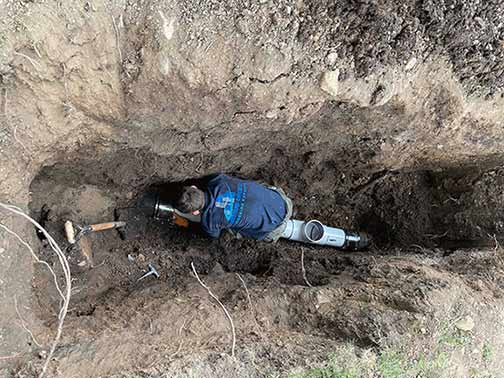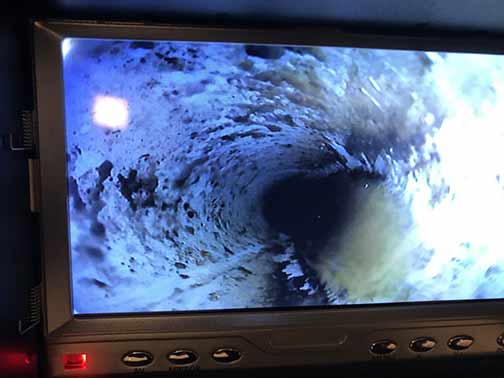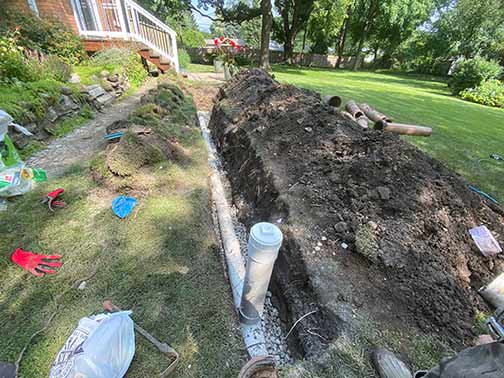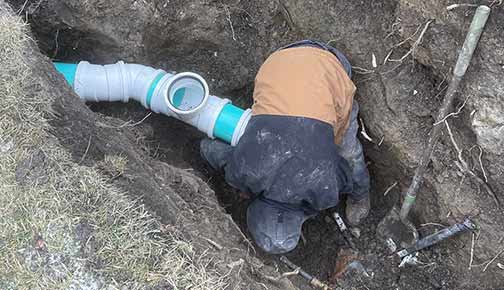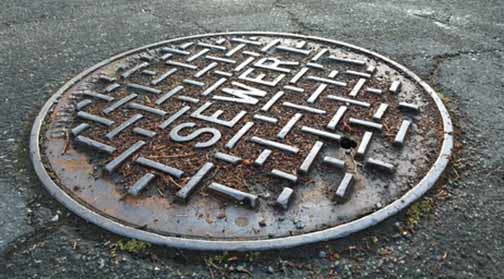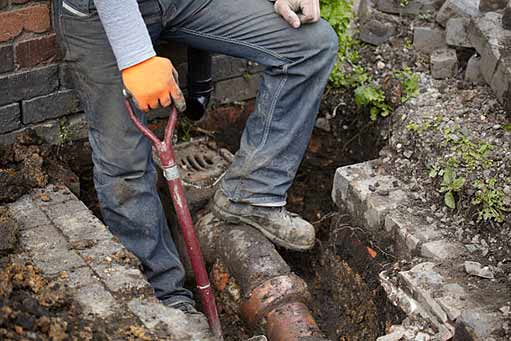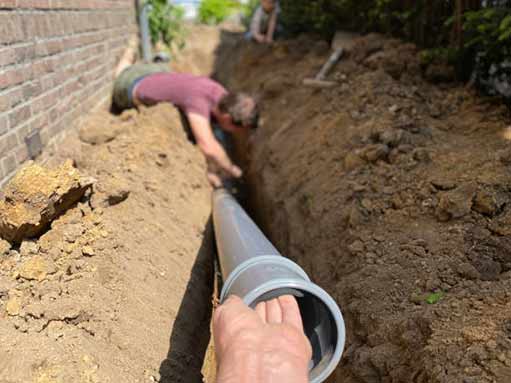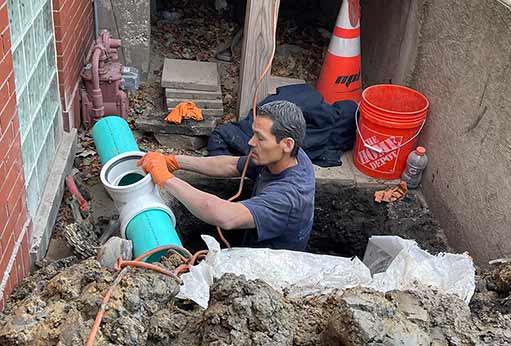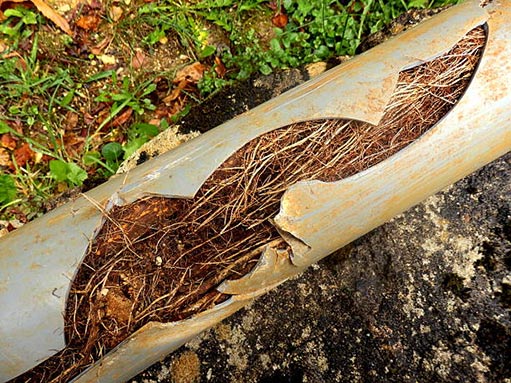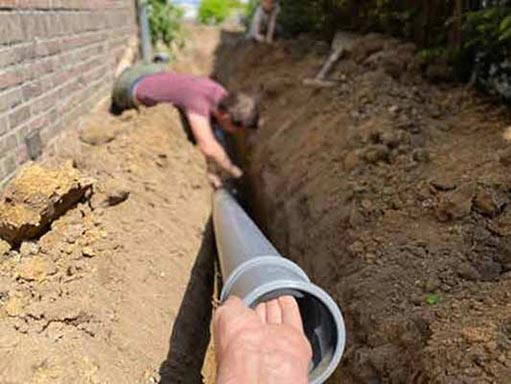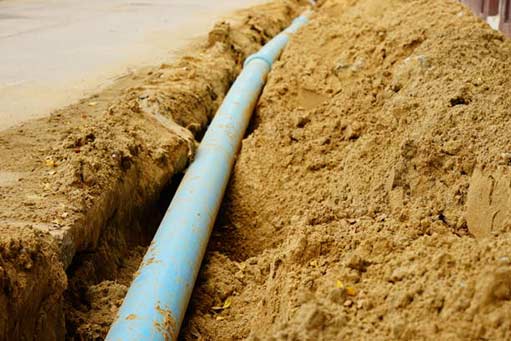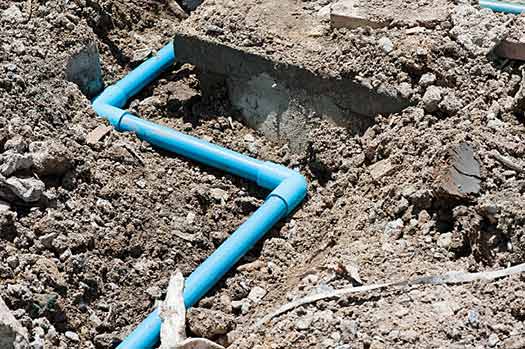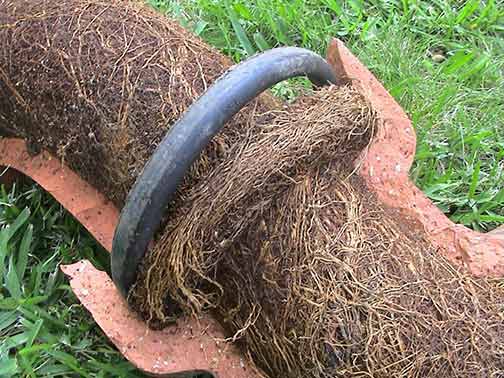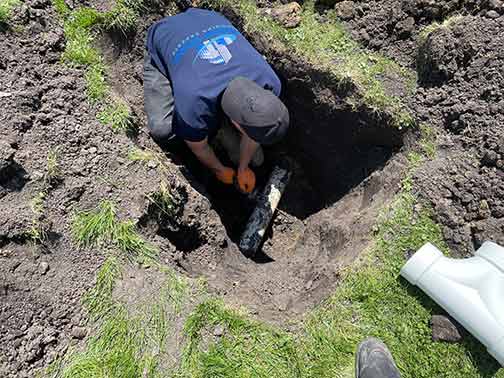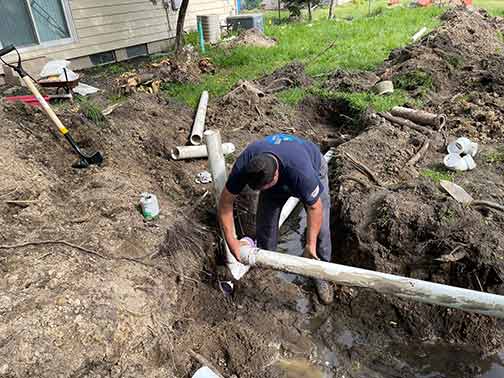
In Chicago, maintaining a healthy sewer system is crucial for both residential and commercial properties. The city’s infrastructure and climate can pose unique challenges, making it essential to be vigilant about the state of your sewer lines. Regular maintenance and timely repairs can prevent severe plumbing problems and costly repairs in the future. The harsh winters and fluctuating temperatures in Chicago can cause pipes to expand and contract, potentially leading to cracks and leaks. Moreover, the city’s aging infrastructure means that many sewer lines are decades old and may be more susceptible to damage. Therefore, understanding the importance of sewer maintenance is vital for homeowners and business owners alike.
Frequent Drain Clogs and Slow Draining: A Sign of Underlying Sewer Problems
One of the most common signs that you may need sewer repair is frequent drain clogs and slow draining. If you notice that your sinks, showers, or toilets are consistently slow to drain, it could indicate a blockage in your sewer line. This issue can be caused by a buildup of debris, grease, or even tree roots infiltrating the pipes. Ignoring this problem can lead to more severe blockages and potential sewage backups. It’s important to address these clogs promptly to prevent further damage to your plumbing system. Regularly using drain cleaners or attempting to unclog drains yourself may provide temporary relief, but it won’t solve the underlying issue. A Chicago plumber can perform a thorough inspection to identify the root cause of the problem and recommend appropriate repairs.
Unpleasant Odors: An Indication of Sewer Line Damage
Another clear sign that you may need sewer repair is the presence of unpleasant odors around your property. Sewer lines are designed to contain and transport waste away from your home or business. If you start to notice foul smells, it could mean that there is a crack or break in the sewer line, allowing sewage to escape. This not only creates an unpleasant environment but can also pose health risks to you and your family. The odors may be more noticeable in certain areas, such as near drains, basements, or outdoor spaces where the sewer line runs. It’s crucial to address this issue promptly to prevent further contamination and potential health hazards. A professional plumber in Chicago can use advanced diagnostic tools to locate the source of the odor and repair the damaged sewer line.
Gurgling Noises from Drains: A Warning Sign of Sewer Blockages
Gurgling noises coming from your drains can be an indication of a problem within your sewer system. These noises are often caused by air trapped in the pipes due to a blockage or other issue. If you hear gurgling sounds when using your sinks, toilets, or showers, it is essential to have a professional inspect your sewer lines to determine the cause and prevent further damage. The gurgling noises may be accompanied by slow draining or water backups, indicating a more severe blockage. Addressing this issue early can help prevent more extensive and costly repairs down the line. A plumber can use specialized equipment, such as a sewer camera, to inspect the pipes and identify the source of the blockage. Once identified, they can recommend the appropriate repair or cleaning method to restore proper drainage.

Water backups are a serious sign that you need sewer repair. If water is backing up into your sinks, showers, or toilets, it indicates a significant blockage or damage in your sewer line.
Water Backups: A Serious Sewer Line Issue
Water backups are a serious sign that you need sewer repair. If water is backing up into your sinks, showers, or toilets, it indicates a significant blockage or damage in your sewer line. This issue can lead to extensive water damage and potential health hazards due to the presence of sewage. Immediate attention is required to address the problem and prevent further complications. Water backups can occur in various areas of your home, such as the basement, bathroom, or kitchen. The presence of sewage in these areas can cause significant damage to your property and pose health risks to occupants. A plumber can assess the situation, identify the cause of the backup, and perform the necessary repairs to restore proper drainage and prevent future occurrences.
Lush Patches in Your Lawn: A Hidden Sewer Leak
While a green and lush lawn is typically a sign of a healthy yard, it can also indicate a problem with your sewer line. If you notice unusually green or lush patches in your lawn, it could mean that sewage is leaking from your sewer line and fertilizing the grass. This can lead to more severe issues if not addressed promptly, as the leaking sewage can contaminate the soil and groundwater. The excess nutrients from the sewage can cause rapid growth in certain areas, resulting in uneven patches of grass. Additionally, the presence of sewage in the soil can attract pests and create an unsanitary environment. A professional plumber can inspect your sewer line for leaks and recommend appropriate repairs to prevent further damage to your property and the environment.
Mold and Mildew Growth: A Symptom of Sewer Line Issues
Mold and mildew growth inside your home can be a sign of a sewer line issue. If there is a crack or break in your sewer line, it can cause moisture to seep into your home’s foundation or walls. This excess moisture creates an ideal environment for mold and mildew to grow, which can lead to health problems and structural damage. If you notice mold or mildew growth, it is essential to have your sewer lines inspected for potential issues. Mold and mildew can cause respiratory problems, allergies, and other health issues, especially for individuals with compromised immune systems. Additionally, the presence of mold can weaken the structural integrity of your home, leading to costly repairs. A plumber can identify the source of the moisture and repair the damaged sewer line to prevent further mold growth and protect your health and property.
Foundation Cracks and Settling: A Consequence of Sewer Line Damage
Cracks in your home’s foundation or noticeable settling can be a sign of a sewer line problem. When a sewer line is damaged or leaking, it can cause the soil around your home’s foundation to erode, leading to cracks and settling. This can compromise the structural integrity of your home and result in costly repairs. If you observe any signs of foundation damage, it is crucial to have your sewer lines checked by a professional. Foundation cracks can appear in various areas, such as walls, floors, or the exterior of your home. Settling may cause doors and windows to become misaligned or difficult to open and close. Addressing the underlying sewer line issue can help prevent further damage to your foundation and maintain the structural stability of your home. A Chicago plumber can assess the situation, identify the cause of the damage, and recommend appropriate repairs to protect your property.

If you notice an uptick in rodents or insects, it could mean that there is a crack or break in your sewer line, allowing sewage to escape and attract these pests.
Rodent and Insect Infestations: A Clue to Sewer Line Problems
Rodents and insects are attracted to sewage, so an increase in these pests around your property can indicate a sewer line issue. If you notice an uptick in rodents or insects, it could mean that there is a crack or break in your sewer line, allowing sewage to escape and attract these pests. Addressing the sewer line problem can help eliminate the infestation and prevent further damage to your property. Common pests attracted to sewage include rats, mice, cockroaches, and drain flies. These pests can carry diseases and pose health risks to occupants. Additionally, their presence can cause damage to your property and create an unsanitary environment. A professional plumber can inspect your sewer line for leaks or damage and recommend appropriate repairs to prevent further pest infestations. Addressing the underlying sewer issue can help create a healthier and safer environment for you and your family.
Increased Water Bills: An Indicator of Sewer Line Issues
An unexplained increase in your water bills can be a sign of a sewer line issue. If there is a leak or damage in your sewer line, it can cause water to be wasted, leading to higher water bills. Monitoring your water usage and comparing it to your bills can help you identify potential sewer line problems early on. If you notice a significant increase in your water bills, it is essential to have your sewer lines inspected. Leaks in the sewer line can cause water to continuously flow, even when not in use, resulting in increased water consumption and higher bills. A professional plumber can perform a thorough inspection to identify the source of the leak and recommend appropriate repairs to prevent further water wastage and reduce your bills.
Preventative Measures and Regular Inspections: Ensuring Sewer System Longevity
To avoid severe plumbing problems and costly repairs, it is crucial to take preventative measures and schedule regular inspections of your sewer lines. Professional plumbers can use advanced technology, such as video camera inspections, to identify potential issues before they become significant problems. Regular maintenance and timely repairs can help extend the life of your sewer system and ensure it operates efficiently. Preventative measures may include routine cleaning, proper disposal of waste, and avoiding the use of harsh chemicals that can damage pipes. Scheduling regular inspections can help detect early signs of damage or blockages, allowing for prompt repairs and preventing more extensive issues. By investing in preventative maintenance, you can save money in the long run and ensure the reliability of your sewer system.
Choosing the Right Sewer Repair Professional in Chicago: Key Considerations
When it comes to sewer repair, choosing the right professional is essential. Look for a licensed and experienced plumber who specializes in sewer line repairs and has a good reputation in the Chicago area. Reading reviews and asking for recommendations from friends and family can help you find a reliable professional. Additionally, ensure that the plumber uses advanced technology and techniques to diagnose and repair sewer line issues effectively. A reputable plumber should provide a detailed assessment of the problem, transparent pricing, and a warranty for their work. It’s important to choose a professional who communicates clearly and provides excellent customer service. By selecting the right sewer repair professional, you can have confidence in the quality of the repairs and the longevity of your sewer system.
Conclusion: Proactive Sewer Maintenance for a Healthy Home
In conclusion, being aware of the signs that indicate you need sewer repair in Chicago can help you avoid severe plumbing problems and costly repairs. Frequent drain clogs, unpleasant odors, gurgling noises, water backups, lush patches in your lawn, mold and mildew growth, foundation cracks, rodent and insect infestations, and increased water bills are all indicators of potential sewer line issues. By taking preventative measures, scheduling regular inspections, and choosing the right sewer repair professional, you can ensure the longevity and efficiency of your sewer system. Proactive sewer maintenance not only protects your property but also contributes to a healthier and safer living environment for you and your family. Don’t wait for a major problem to arise; stay vigilant and address any signs of sewer line issues promptly to maintain the integrity of your plumbing system.

